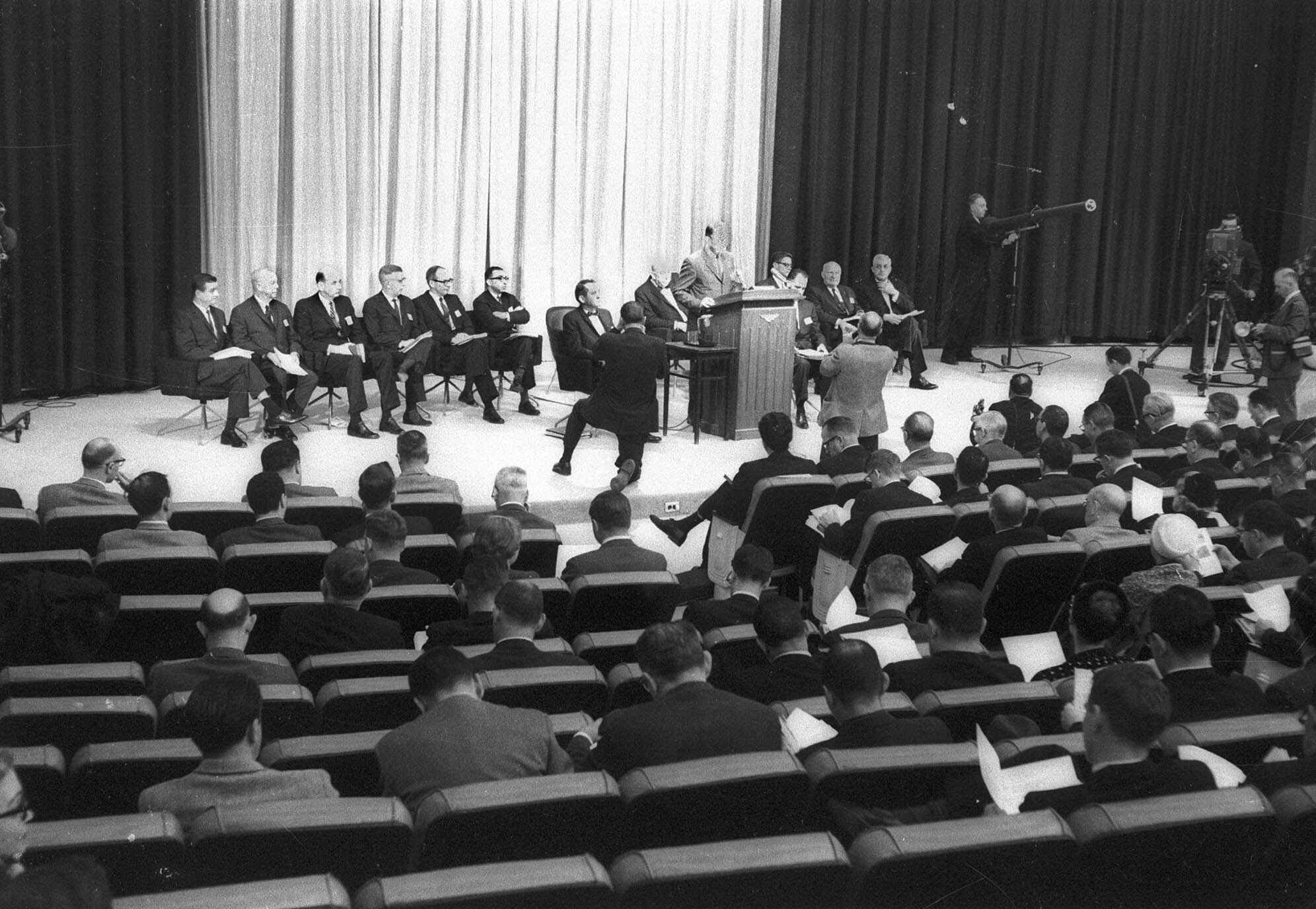
Emmanuel Farber, the Canadian-American doctor whose medical research contributed to groundbreaking discoveries in the study of cancer-causing chemicals, died on Sunday. He was 95.
“He represents a guiding example of a life devoted to serving his fellow man and scientific colleagues with unmatched qualities of integrity, humbleness, deep reasoning, and an exquisite no-nonsense … approach to science,” the Society of Toxicologic Pathology wrote in 1985, when inducting him as an honorary member.
Farber was born in 1918 in Toronto, where he would first study medicine. After graduating from the University of Toronto with an M.D. in 1942 and serving in the Royal Canadian Medical Corps during World War II, he earned a Ph.D. in biochemistry from the University of California, Berkeley.
His career was long and his legacy is vast, but perhaps his most prevailing accomplishment came at the nexus of medicine and public policy, when, in the early 1960s, he sat on the Surgeon General’s Advisory Committee on Smoking and Health, which produced some of the earliest conclusive evidence that cigarettes could cause cancer. The committee’s report, according to Harvard Medical School, caused a paradigm shift in American culture, which until then largely dismissed concerns surrounding smoking’s health risks.
Over the course of his career, Farber held positions on the faculties of Tulane University, the University of Pittsburgh, and his alma mater in Toronto; he also served as president of both the American Association for Cancer Research and the American Society of Experimental Pathology. He received numerous awards for his scientific research.
He spent the last years of his life in Columbia, S.C., where he would meet his second wife, Henrietta Keller Farber. She died in 2011. He is also preceded in death by his first wife, Ruth Farber, and two siblings, Lionel Farber and Sophie Goldblatt. He leaves behind a daughter, a son-in-law, and one grandson.
More Must-Reads From TIME
- The 100 Most Influential People of 2024
- Coco Gauff Is Playing for Herself Now
- Scenes From Pro-Palestinian Encampments Across U.S. Universities
- 6 Compliments That Land Every Time
- If You're Dating Right Now , You're Brave: Column
- The AI That Could Heal a Divided Internet
- Fallout Is a Brilliant Model for the Future of Video Game Adaptations
- Want Weekly Recs on What to Watch, Read, and More? Sign Up for Worth Your Time
Contact us at letters@time.com